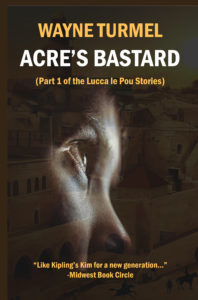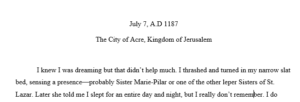One of my earliest histfic obsessions was King Arthur. Few time periods have been as written about, even though little is actually known (which, let’s face it, makes it easier!) It’s a world where fantasy, history, romance and adventure all come together and everyone’s sort of okay with it. Whether you’re into Jack Whyte and his heavily researched Camulod series, or Marion Zimmer Bradley’s feminist take on it, it’s FUN.
Falling on the hard history side is Tim Walker’s “A Light in the Dark Ages,” series. He’s re-released his first tale, “Abandoned.”
Alright, Tim. What’s your deal?
 I’m an independent author with seven titles in the following genres: historical fiction, dystopia, children’s and short stories. Fire away, Wayne…
I’m an independent author with seven titles in the following genres: historical fiction, dystopia, children’s and short stories. Fire away, Wayne…
In a nutshell, what’s the book about?
My latest book is an historical fiction novel, Abandoned. Actually, it is a second edition based on a novella I wrote in 2015, but more than twice the length of the original. Abandoned is the starting point for what became a three-book historical series, A Light in the Dark Ages. Having completed the series with the launch of book three, Uther’s Destiny, in March 2018, I then went back and did an extensive re-write of Abandoned, launching the second edition in July 2018. I can now sit back and say, ‘Job done!’
Abandoned is an adventure story that starts the day the last Roman Governor of Britannia departed for good, and surmises on what may have happened in the early days of the Dark Ages. It lives on the boundary between historical fact, supposition and mythology.
What is it about that time period or character that intrigued you and motivated you to write about it?
It all started when I visited the site of a former Roman town in the south of England and began wondering what life must have been like for the Briton inhabitants after the Roman garrison marched for the last time, around the year 410 AD. After nearly four hundred years of occupation and assimilation, would the locals have regarded this as liberation or abandonment? The town in question was called Calleva Atrebatum – literally, ‘the wooded place of the Atrebates’. The Romans built a fortified town on the site of the Atrebates’ tribal village. By naming their town after the locals, it suggests a desire at conciliation and co-operation. From this starting point I researched what was known about the immediate post-Roman period in Britain (the fifth century) and discovered that, apart from a few surviving manuscripts written by monks, there is very little to go on. Lurking on the horizon is the legend of King Arthur, with some historians daring to suggest there was a real military leader of this name who organised resistance to the spread of aggressive Germanic/Danish tribes – the Saxons, Angles and Jutes.
If Arthur, as is suggested in the Welsh Chronicles, died at the Battle of Camlann around the year 537, then assuming he was in his early fifties (why not?), then he would have been born around the year 485. I took this date as a target to conclude my ‘alternative history’, but became so intrigued by the earliest account of the Arthurian legend (written by Oxford academic, Geoffrey of Monmouth, around 1136), that I included the story of Arthur’s father – Uther Pendragon – and the early life of the boy Arthur, in my third book, Uther’s Destiny. Geoffrey, by the way, claims to have worked from ‘an ancient book written in the British language’ but no evidence of this mysterious text has ever been found to corroborate his claim.
It’s heady stuff delving into this ‘black hole’ in English history that has been plugged with legend and mythology. My aim was to write an alt-history of Britain in the fifth century, and slowly creep up on the Arthurian legend, presenting it as a believable part of the narrative. All myths have a basis in some human events – often extraordinary and worthy of immortalising in ballads and fireside stories. We know that it took the Saxons nearly two hundred years to subdue the Britons and carve out their kingdoms, so it is a fair assumption that there was organised resistance. Was Arthur one man or a composite of a number of resistance leaders? Our hopes for an answer lies with archaeologists and historians who are still searching for evidence of what really happened in Britain in the fifth and sixth centuries.
Without giving away spoilers, what’s your favourite scene or event in the 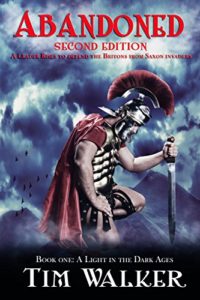 book?
book?
My hero, Marcus, had already suffered the trauma of barely surviving a battle against a ruthless Saxon war party when his heart froze at the sight of the return of his deadly foe. He is standing on the battlements of the town of Londinium (London) staring down the River Tamesis (Thames)…
A CRY WENT up at the sight of a fleet of a dozen ships slipping menacingly along the Tamesis as far as the Roman bridge, their dragon heads edging past startled merchant boats that tried to steer away. They lowered their sails and ran out their oars in a practised manoeuvre, rowing against the flow of the dirty brown river, following the lead ship along the centre channel. The drawbridge was down, preventing the single mast ships from passing under the bridge and forcing them to beach their vessels on the shingle shore outside the town walls. Soon helmeted warriors leapt from their ships, shouting war cries and banging their weapons on their shields to announce their arrival. Horn blasts from the towers called the guards to their posts.
Allectus and Marcus, barely a week into their tenure as Commanders of the Guard, met on the parapet over the south gatehouse. They looked down on scurrying families who had abandoned their pots, baskets and fishing nets to take to the wooden planks that floated above the river mud and led to the safety of the raised bridge approach.
“It seems our coming was timely,” Allectus growled, seeing the scampering traders on the bridge whipping their pigs and goats into a trot.
But for Marcus, it seemed time was suspended as he stared down at the tide of frightened folk cramming through the gates, his white-knuckled grip on the stone turret betraying his anxiety. To his left, Allectus was barking out orders as guards scurried past him. The Saxons swaggered across the mudflats with steely menace, shouting in their harsh, guttural language. Two raiders dragged a cowering boy from the first wicker hut they encountered and, whilst their accomplices mocked the wretched child’s screams, butchered him as if he were no more than an animal.
Marcus’s glazed expression and dream-like state had not gone unnoticed. “Your enemy has returned, Marcus,” Allectus intoned, slapping him on the shoulder and jolting him out of his daze. “We shall lock them outside for now, but the bridge and south bank settlement are exposed.”
“I have a troop of fifty men stationed in the south bank guardhouse,” Marcus groaned, staring helplessly across the now deserted bridge.
“They must buy time by raising the south arm of the drawbridge to prevent these dogs from rushing over the bridge to a feast of merry slaughter,” Allectus replied. “We have nearly two thousand men in barracks, and five hundred horses. I estimate their numbers at barely five hundred.”
Marcus eyed the more experienced commander as he marshaled his thoughts, struggling to shut out a living nightmare of guttural chanting in time to drum beats drifting on the wind. His fingers curled around the dragon medallion that hung from his neck, comforting him. “I shall send a rider across the bridge with an order to raise it and hold firm.”
Where can people find you and your book (links to Amazon page, Goodreads, Twitter, Blog whatever)
Readers can find out more about me and my books at my website – http://timwalkerwrites.co.uk
Universal book links for the three-book series:
http://myBook.to/Abandoned
http://myBook.to/Ambrosius
http://myBook.to/Uther
Amazon Author Page: http://Author.to/TimWalkerWrites
Facebook page: https://facebook.com/TimWalkerWrites
Twitter: https://twitter.com/timwalker1666
Subscribe to my newsletter and get a chance to win a signed paperback copy of Acre’s Bastard. Each month you’ll receive links to interviews with great authors, news about upcoming events and previews of my work in progress, Acre’s Orphans. Look at the bottom left of the page for the sign-up sheet. No spam, just once a month updates and a chance to learn about great new Historical Fiction of all types from around the world.

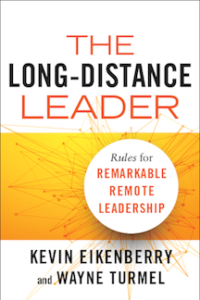
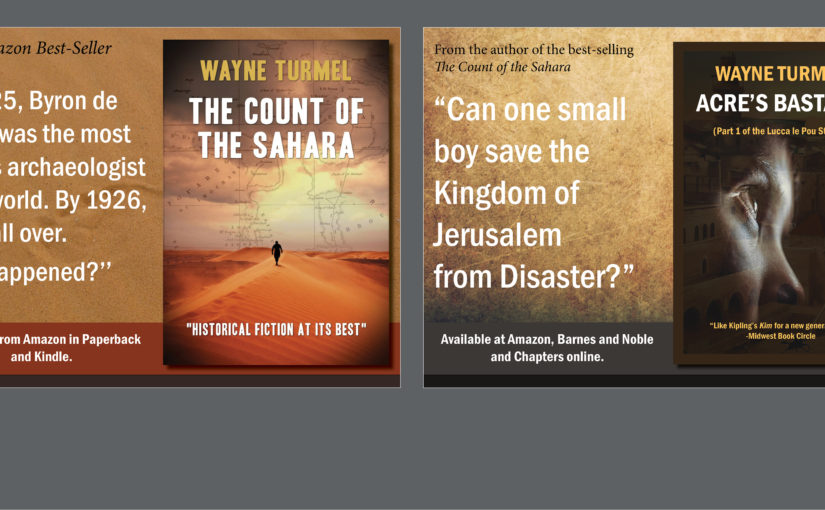

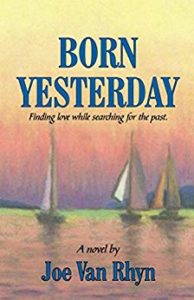
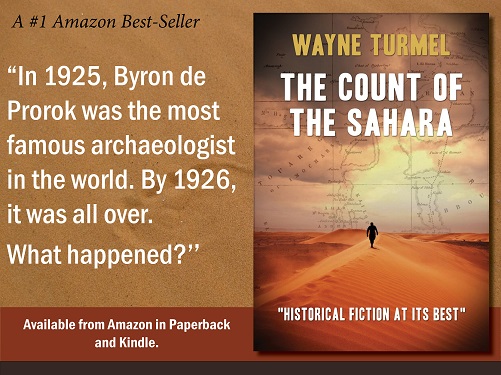

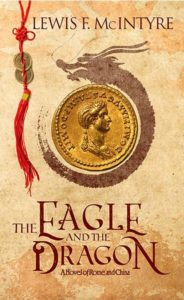


 The final entry is a story I love and have never found a home for. Also history-based, “Los Angeles, 1952” is a tale of boxing, old Hollywood and a first date that may or may not be going well. The only place it has a home is on
The final entry is a story I love and have never found a home for. Also history-based, “Los Angeles, 1952” is a tale of boxing, old Hollywood and a first date that may or may not be going well. The only place it has a home is on 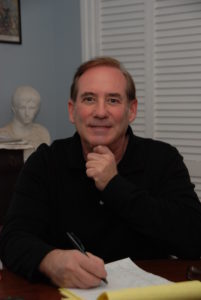
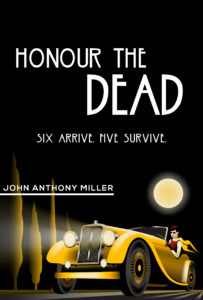

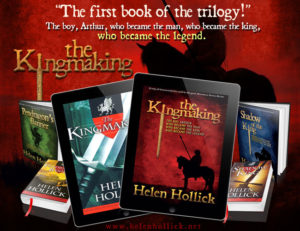


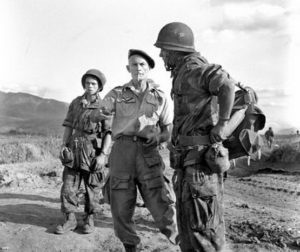 “Short stories and other pieces” link on this site. Enjoy.
“Short stories and other pieces” link on this site. Enjoy.